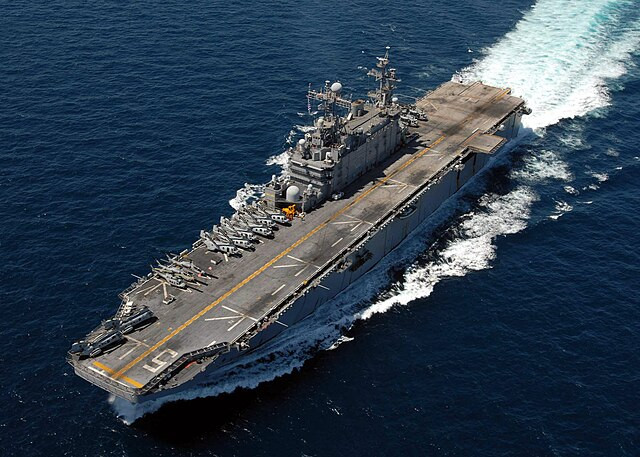The United States has indicated a willingness to consider escorting Philippine ships in the contested South China Sea, according to Admiral Samuel Paparo, the head of U.S. Indo-Pacific Command. This potential move reflects the increasing tensions between Beijing and Manila, underscoring the volatile dynamics in the disputed waters.
In a press conference held in Manila, Paparo stated that such a measure would be contingent upon consultations under the 1951 Mutual Defense Treaty (MDT). "Certainly, within the context of consultations, every option between the two sovereign nations in terms of our mutual defense, escort of one vessel to the other, is an entirely reasonable option," Paparo said. His remarks come amid heightened confrontations involving Chinese and Philippine vessels in the region.
The South China Sea has become a flashpoint for geopolitical friction, with regular clashes between Chinese coast guard and naval vessels and their Philippine counterparts. The situation has recently escalated, resulting in injuries and damage to Philippine ships. The White House condemned a particularly severe incident in June, where a Chinese Coast Guard vessel allegedly rammed a Philippine resupply ship, leaving a Filipino sailor injured.
Paparo's comments reflect a significant shift in U.S. posture towards the region, potentially putting American naval assets in direct contact with Chinese vessels. However, Philippine Armed Forces Chief Gen. Romeo Brawner Jr. approached the idea cautiously. "The attitude of the Armed Forces of the Philippines, as dictated by the Philippine laws, is for us to first rely on ourselves," Brawner said. He emphasized that while the Philippines will explore all available options, it remains committed to self-reliance in its maritime operations.
In the backdrop of these developments, Philippine Defense Secretary Gilberto Teodoro Jr. has called for a more dynamic interpretation of the MDT to better address contemporary threats. Speaking at an international military conference organized by U.S. Indo-Pacific Command, Teodoro emphasized the need for a broader understanding of the defense pact. "The mutual defense treaty should be interpreted dynamically," he said. Teodoro argued that a rigid interpretation could disadvantage the Philippines in the face of an expanding adversary like China.
China's aggressive stance in the South China Sea, where it claims sovereignty over almost the entire area, has drawn significant international criticism. Recent incidents include a blockade by Chinese vessels of Philippine ships attempting to deliver supplies to the BRP Teresa Magbanua, stationed at the contested Sabina Shoal. The confrontation involved a reported deployment of 40 Chinese ships and has exacerbated tensions between the two nations.
Teodoro has called for stronger international action against China, criticizing the current level of global response as insufficient. He proposed a more robust collective stance, such as a U.N. Security Council resolution, though he acknowledged the challenge posed by China's veto power as one of the council's permanent members. "The antidote is a stronger collective multilateral action against China," Teodoro said.
The U.S. commitment to the MDT remains a cornerstone of its defense policy in the region. President Biden has reaffirmed the "ironclad" nature of the treaty, pledging support for the Philippines in the event of an armed attack. This assurance comes as part of a broader U.S. strategy to counter China's expanding influence and maintain stability in the South China Sea.
The recent forum in Manila, attended by military and defense officials from various allied countries, highlighted the increasing focus on China's activities in the region. Notably absent were representatives from China, underscoring the strained relations and the contentious nature of the maritime disputes.






